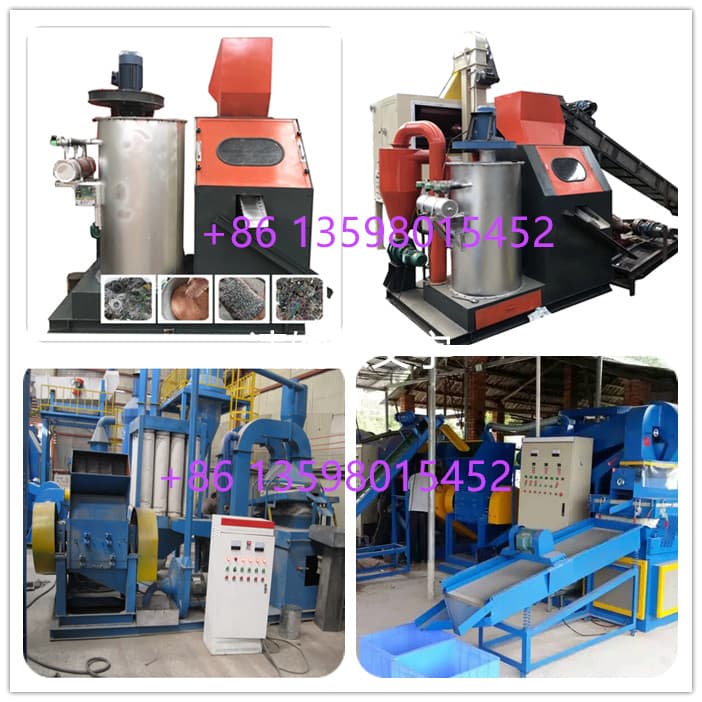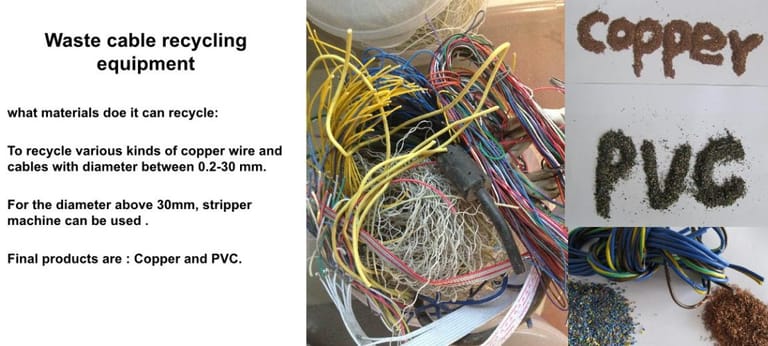
Scrap cable crusher separator machine for copper
High-quality copper granules and plastic granules scrap for recycling Scrap cable
Introduction:
Scrap cable crusher separator machine for copper can be used to separate High-quality copper granules and plastic granules scrap for recycling Scrap cable
How to work:
Recycling of Scrap cable wire involves a systematic, multi-step process designed to maximize metal recovery while ensuring environmental sustainability:
Step 1: Initial Crushing & Iron Removal
Scrap cable is first subjected to rough crushing to break down bulk materials. During this stage, iron-containing impurities are extracted using magnetic separation, ensuring the feedstock is free from ferrous contaminants that could hinder subsequent processing.
Step 2: Fine Crushing & Homogenization
The de-ironed material undergoes secondary crushing to produce a uniform mixture of metal (copper) and plastic. This step ensures particle size consistency, a critical factor for efficient separation in downstream processes.
Step 3: Gravity Separation
Leveraging the significant density difference between copper(metal) and plastic, the homogeneous mixture is processed through a gravity separator. This technology efficiently segregates the two components, with copper settling out due to its higher weight, while plastic particles are separated as lighter fractions.
Step 4: Electrostatic Refining
While gravity separation removes most plastic, residual copper fines or filaments (typically 2–5% of the plastic fraction) may remain. An electrostatic separator is employed to recover these minute copper particles. By utilizing differences in electrical conductivity, copper—being conductive—is separated from non-conductive plastic, ensuring near-complete metal retrieval.
The result is a high-purity copper product and plastic fraction free of metallic residues, significantly enhancing the value of both recycled materials.
Raw materials and final products:

Related products:
Small cable recycling machine for small recycling center
Contact us
Whatsapp/Mobile: +86 187 3815 8809
© 2025. All rights reserved.


